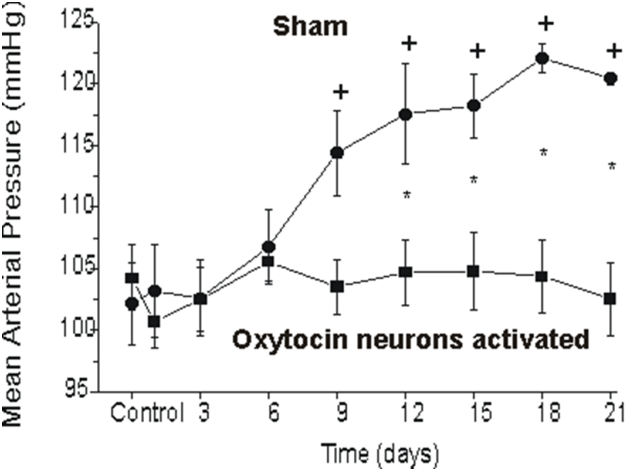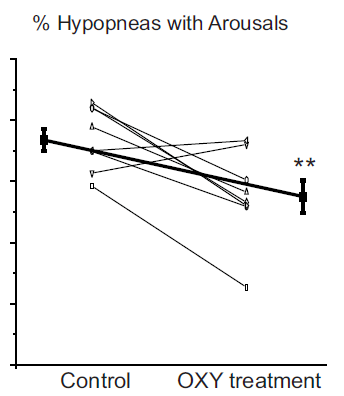Obstructive sleep apnea (OSA) is a health risk that occurs in 24% of males and 9% of females in the United States. OSA can lead to several cardiovascular diseases including hypertension, arrhythmia, and stroke. Continuous positive airway pressure (CPAP) treatments often fail due to low compliance.
GW Researchers developed an intranasal oxytocin administration method that protects OSA patients by maintaining cardiovascular homeostasis. They also see potential for decreasing awakening events, increasing sleep quality, and increasing compliance with CPAP.
Oxytocin is a human peptide hormone well known for its roles in childbirth. Oxytocin is also involved in anxiety and social bonding, which is why it may help with CPAP compliance. In animal models of social stressors, oxytocin has been shown to be protective against behavioral and cardiac dysfunction.
Human sleep studies are underway at GW. Cardiac benefits of stimulating oxytocin-releasing neurons in the brain were seen when in rats faced with chronic intermittent low oxygen (a model for OSA).

Fig. 1 - Oxytocin Release Prevents Increase in Blood Pressure in Rat Model

Fig. 2 - Percent Hypopneas with Arousals in Sleep Apnea Patients significantly decreased with Oxytocin
Applications:
- Treat OSA patients with or without concurrent CPAP
Advantages:
- Reduce risk of cardiovascular diseases such as hypertension and tachycardia
- Increase Patient compliance with standard CPAP treatment
- Can integrate with CPAP device for intranasal delivery by nebulizer